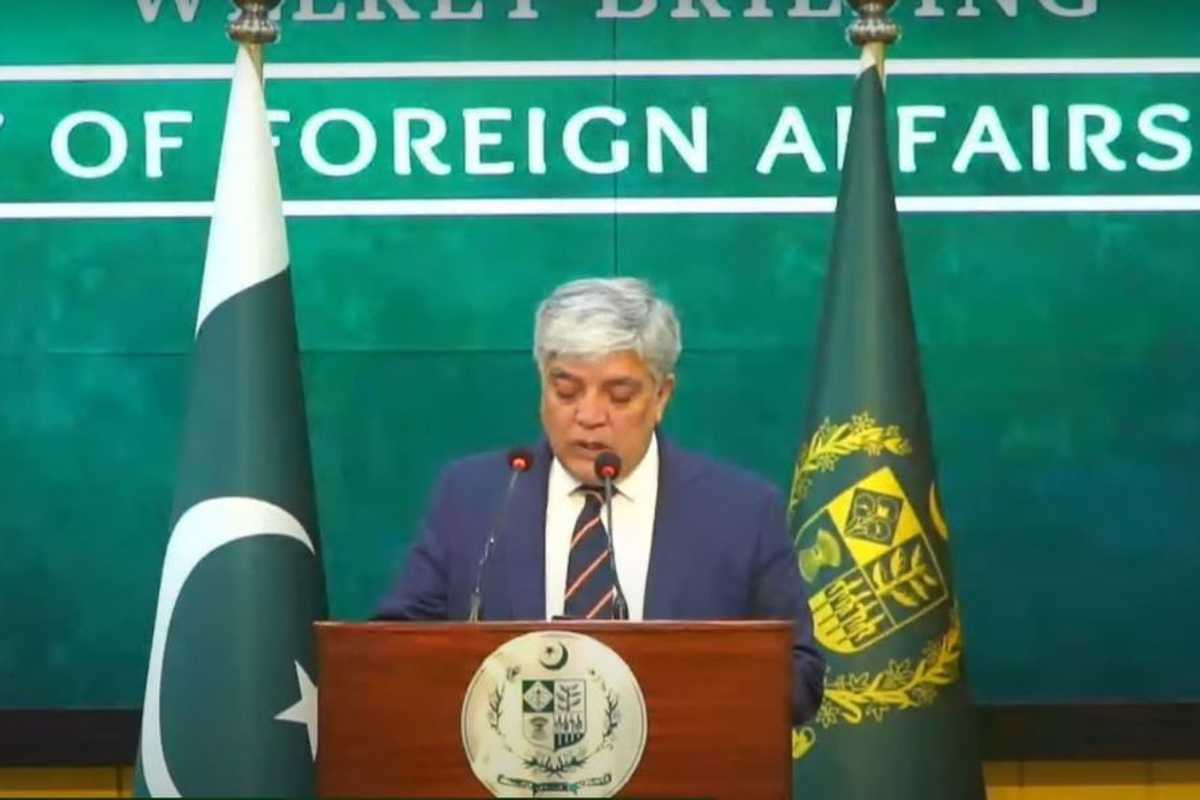FO dismisses anti-Pakistan US bill as senator's 'unilateral move'
Foreign Office spokesperson calls separate sanctions against Pakistani subsidiaries of Chinese companies 'baseless'

Aamir Abbasi
Editor, Islamabad
Aamir; a journalist with 15 years of experience, working in Newspaper, TV and Digital Media. Worked in Field, covered Big Legal Constitutional and Political Events in Pakistan since 2009 with Pakistan’s Top Media Organizations. Graduate of Quaid I Azam University Islamabad.

US sanctions on Pakistani companies imposed without evidence
High-level talks held with Afghanistan on bilateral issues
Pakistan welcomes Russia-Ukraine ceasefire, hopes it lasts
Pakistan has rejected a recently introduced bill in the U.S. Congress seeking sanctions on Pakistani officials, calling it a "unilateral move" that fails to represent the broader relationship between the two nations, amid ongoing regional security challenges and diplomatic engagements across South Asia.
Foreign Office Spokesperson Shafqat Ali Khan, in his weekly press briefing, responding to the bill, said, "We are aware of the bill introduced in the U.S. Congress. This is an initiative taken by an individual and does not represent the overall state of Pakistan-United States relations. We hope the U.S. Congress will take steps to strengthen the positive ties between both nations."
The bill, formally known as the Pakistan Democracy Act, was introduced by Republican Congressman Joe Wilson and Democrat Jimmy Panetta. It invokes the Global Magnitsky Human Rights Accountability Act, urging sanctions—including visa bans and travel restrictions—on key Pakistani officials, including the Pakistan army chief, within 180 days.
The bipartisan legislation specifically raises concerns about political repression in Pakistan, particularly the role of the military in suppressing opposition voices and the treatment of former Prime Minister Imran Khan.
Despite lobbying efforts by Khan's supporters in the United States, experts believe the bill faces significant hurdles. Michael Kugelman, director of the South Asia Institute at the Wilson Center, noted that while the bill could be "one of the most significant pieces of legislation on Pakistan from the U.S. Congress in many years", its passage remains uncertain.
Experts suggest it is unlikely the Trump administration will pass the bill or enforce the sanctions, given the current security situation in Pakistan and increased counter-terrorism collaboration between the two countries.
This was highlighted when President Trump recently thanked Pakistan's government for assisting in the arrest of Sharifullah, an Islamic State member accused of planning the 2021 Kabul airport attack.
Commenting on separate U.S.-imposed sanctions on Pakistani subsidiaries of Chinese tech companies, Spokesperson Khan termed them "baseless," emphasizing that the restrictions were imposed without concrete evidence.







Comments
See what people are discussing